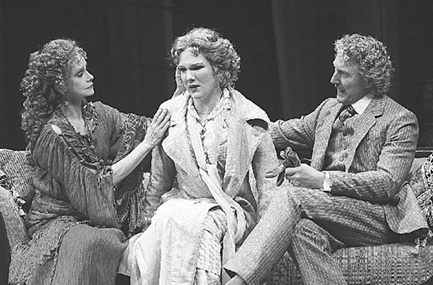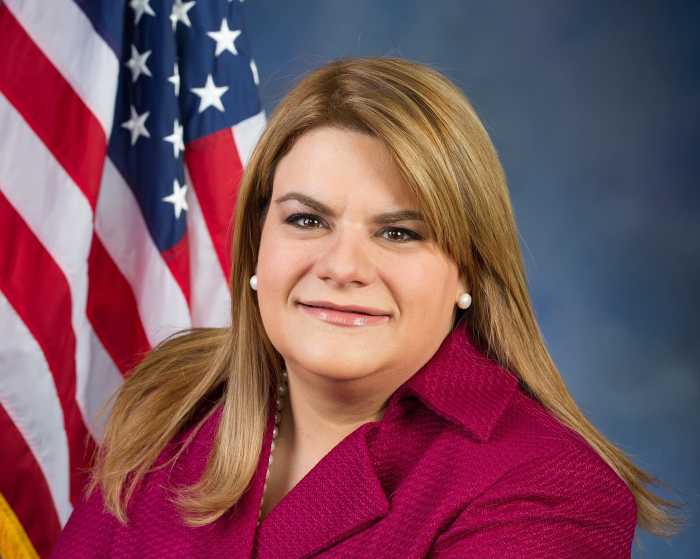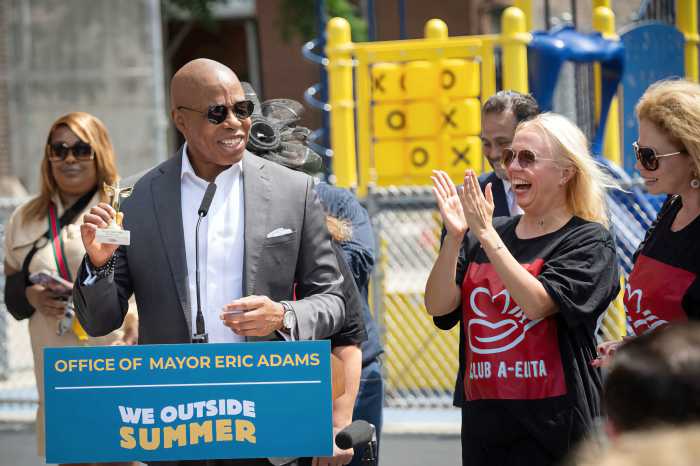Roundabout mounts Shaw’s “Russian Fantasia”
In writing “Heartbreak House,” Shaw paid homage to Chekhov, giving his play the subtitle “A Fantasia in the Russian Manner on English Themes.” Structurally and thematically, the play resembles, most notably, “The Cherry Orchard.” The play’s themes of social upheaval, the disintegrating social order, grand philosophies of life, religion, class, and wealth bedeviled Chekhov and drove him to some of his greatest work. These themes also have eerie echoes for our world. England in 1920 at the end of an apocalyptic war and the U.S. today are both on the brink of change, and the outlook is not especially cheery in either Shaw’s work or our world, though Shaw’s characters have a lot more class, wit, and refinement than seems common today.
Shaw was a tireless crusader, a gimlet-eyed realist and often frustrated in communicating his views on the failure of systems—financial, social, and governmental—particularly when faced with a government that resisted change. So he wrote plays, the radio talk shows of his day. His characters are real people, though they are often symbolic and given to prodigious polemics, and the work is always fascinating and complex. Like Shakespeare, of whom Shaw was not enamored and who takes a drubbing or two in “Heartbreak House,” the central drama is timeless and seems always to be relevant to the ways of humanity.
This is why ambitious theater companies do Shaw, but for audiences, it can take a lot of work to sit through these plays. It behooves a director to find the sparks and the character that can galvanize attention since, more often than not, what we’re watching is a prettified intellectual discourse. Sadly, contemporary ears are not attuned to Shaw’s attenuated arguments, nor to the complexity of thought they contain. That’s certainly no surprise in a world that runs on sound bites and news cycles, or where message points take the place of cogent thought.
So, Shaw on stage can be difficult and demands an extraordinary amount of clarity and focus. Roundabout’s new production looks ravishing and sounds spot on, but it only seldom approaches its potential as live theater. For all the clashing of ideologies and libidos among the characters and even literal explosions at the end, such as the death knell of the Victorian world, the production seems remarkably devoid of any kind of mental, sexual, or personal fireworks. Director Robin Lefevre moves the play from one set piece to the next and seems to have allowed the actors to do what they will; as a result, they often seem to be in different plays.
The redoubtable Philip Bosco as Captain Shotover seems to amble through much of the play, speaking into his beard; only in the final scenes does he come into himself. He is a man who embodies Shaw’s bleakest view of mankind, to the point of espousing blowing us all up and starting over. Bosco seems more depressed than anything else in the role, and his apparent lack of passion robs the character of his inherent irony.
Swoosie Kurtz is a presence to be reckoned with, but that’s about all. Though referred to as a “siren,” she is practically asexual in the role of Hesione Hushabye, a vindictive woman who buries her anger and increasing powerlessness in charm and wit. Hesione is determined to derail the marriage of convenience between the young innocent Ellie Dunn and the millionaire Boss Magnan because it represents the dissolution of the order she depended upon. However Kurtz gives a muddy and unfocused performance that is long on mannerisms but short on chemistry with anyone else on stage. As a result, Hesione seems to be already irrelevant rather than fighting to the end.
Lily Rabe, however, is dynamic as Ellie Dunn. The character symbolizes the new world—fresh, brash, careless, and self-serving—and Rabe performs the role with fire and intensity that brings the voice of the soul to Shaw’s mind games. The old guard doesn’t stand a chance against her, and as we watch Ellie’s heart break—twice no less—we also see it harden into the adamant of a craven new world that was particularly disturbing to Shaw…and should be to us. The rest of the company gives workmanlike, respectable performances, neither detracting from the play nor adding anything unique.
Laila Robins perhaps fares better than the rest, with a mix of the then new science of psychology and arrogance. Shaw has her character, Ariadne Utterword, return from colonial India, where the dissolution of the class system is lagging England. The character is remarkably out of place and out of touch, and Robbins manages that very well, as the order that was supposed to sustain her slips away.
John Lee Beatty’s ship shape set—really, it’s a ship—reflects Shaw’s intended metaphor for England, and Jane Greenwood’s costumes are splendid in every detail.
To be fair, this is not an easy play and Roundabout should be applauded for the effort. Unlike the much more focused “Major Barbara” or “Misalliance” or the more conventional narrative of “Pygmalion,” this is a sprawling piece that comes together only in the final act. Lefevre has not served the audience well eliminating the second act break, though that would be highly unconventional by today’s standards. For Shaw, we need the time to regroup and absorb, to be ready for what comes next.
Shaw builds his arguments like his house, of good stuff, sturdy and intended to last. In production he needs to be met with equal passion and intelligence. Or else, as here, the foundation turns out to be in need of shoring up.
gaycitynews.com



































